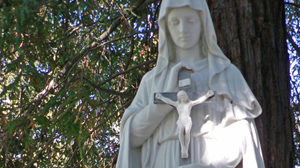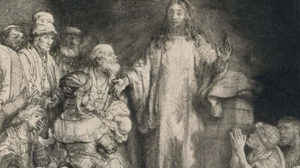Genesis 18:1-10
Colossians 1:24-28
Luke 10:38-42
Reflection:
Here’s a gospel story for which we love to take sides! Those of us who feel we are always doing more than our share of what needs to be done, whether in our families, communities, or on our jobs, rally around a miffed Martha when she complains to Jesus that her dreamy sister needs to get up and lend a hand. But those of us who think that the way too industrious Marthas of this world need to chill a little before they drive everybody crazy, loyally align ourselves with Mary.
And yet, rather than seeing Mary and Martha as irreconcilable opposites, maybe we should see them as two essential dimensions of the Christian life that must be kept in balance. When Jesus tells Martha, “Mary has chosen the better part,” he reminds us that God must be the absolute center of our lives. No matter how much good we may do, if it leaves us so busy that we seldom have time for the prayer, solitude, and contemplative listening that is necessary to nurture our relationship with God, it is spiritually detrimental. That is why we need to be Mary, sitting “beside the Lord at his feet, listening to him speak.” But we also need to be Martha because the friendship with God that prayer cultivates should always open up in love and service of others.
Mary and Martha. When we strive to emulate what is best in both of them, we realize that Jesus speaks to us not only in prayer, but also in every neighbor who comes our way.
Paul Wadell is Professor of Theology and Religious Studies at St. Norbert College in De Pere, Wisconsin, and a member of the extended Passionist family.








